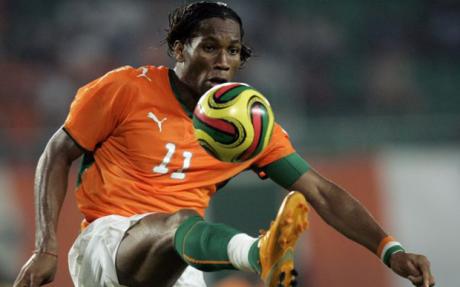It has been a dreadful start to the year for African football.
I was just settling down to write a column arguing that African governing body CAF’s decision to sign an exclusive sponsorship deal with Qatar 2022 demonstrated that FIFA needed to take a firmer grip on the World Cup bidding process - either that or simply auction the 2018 and 2022 World Cups to the highest bidders - when word of the attack on the Togo team came through.
Obviously this is a different scale of problem altogether.
Yet both episodes have contributed to the big shadow now looming over what ought to be a breakthrough year for a continent that, Lord knows, has to battle mightily hard for its voice to be heard in any international forum with real clout.
And the year is not yet 10 days old.
To deal first with the consequences for the African Cup of Nations.
The eyes of the world were always going to be on this 27th edition of the tournament more than ever before for a variety of reasons: the global stature of players such as Ghana’s Michael Essien and Côte d’Ivoire’s Didier Drogba; the accident of timing that has made the 2010 competition a curtain-raiser for the first African World Cup; the success story that Angola is on the verge of becoming after decades ripped apart by war.
Now they will be glued to it all the more, but for the wrong reasons.
Events are moving quickly as I write this.
At the moment, however, it looks like the tournament is set to go ahead, albeit with a large question-mark over Togo’s participation.
What I severely doubt in the wake of this shocking attack is whether Cabinda - an oil-rich enclave to the north of the main body of Angola – can be judged in any way a safe venue.
 Drogba (pictured) and Essien – probably the two biggest names in African football – are due to line up in Cabinda’s Estádio Chimandela, along with Côte d’Ivoire’s Kolo Touré and Togo’s Emmanuel Adebayor, as early as Monday.
Drogba (pictured) and Essien – probably the two biggest names in African football – are due to line up in Cabinda’s Estádio Chimandela, along with Côte d’Ivoire’s Kolo Touré and Togo’s Emmanuel Adebayor, as early as Monday.
English Premiership clubs are hardly noted for their love of the Cup of Nations at the best of times.
I find it very hard to believe that their clubs would now allow this to happen.
The line of least resistance, therefore, might well be for the Group B matches, scheduled to be played principally in Cabinda, to be shifted to the other venues of Luanda, Benguela and Lubango.
If Togo does withdraw, you would only be talking about rearranging two matches, albeit one a real humdinger between Ghana and Côte d’Ivoire, a match-up that could easily be replicated in the final.
It seems inevitable that this incident will also lead to security at this summer’s main event, the 2010 World Cup in South Africa, being subjected to yet more intense scrutiny.
Many will argue, with some justification, that extrapolating between Cabinda and Johannesburg is akin to comparing, I don’t know, Kosovo and Germany.
But security was always going to be an area in which it was vital, for the credibility of an entire continent, that South Africa did an outstanding job.
It will be even more so now.
The only straw one can clutch at is that the Togo party’s harrowing ordeal should at least ensure there is not the slightest trace of complacency.
Yes, football is only a game.
Yet it is hard to overstate the importance of 2010’s football tournaments for Africa’s image on the world stage.
Football, after all, is one of very few areas of intense international interest in which the continent has started to taste real power.
Going back to that contest for the 2018 and 2022 World Cups, four of the 24 voices who, this coming December, will decide where these competitions will be staged are African.
What is more, with no African countries in either race, these four voices will be particularly important, especially in the early rounds of voting.
One way or another, for the world’s biggest sport, 2010 is set to be Africa’s Year.
It would be a tragedy - and I don’t use the word lightly - for this much-abused continent if we end up remembering it for all the wrong reasons.
David Owen is a specialist sports journalist who worked for 20 years for the Financial Times in the United States, Canada, France and the UK. He ended his FT career as sports editor after the 2006 World Cup and is now freelancing, including covering last year’s Beijing Olympics. An archive of Owen’s material may be found by Twitter users at www.twitter.com/dodo938

.jpg)